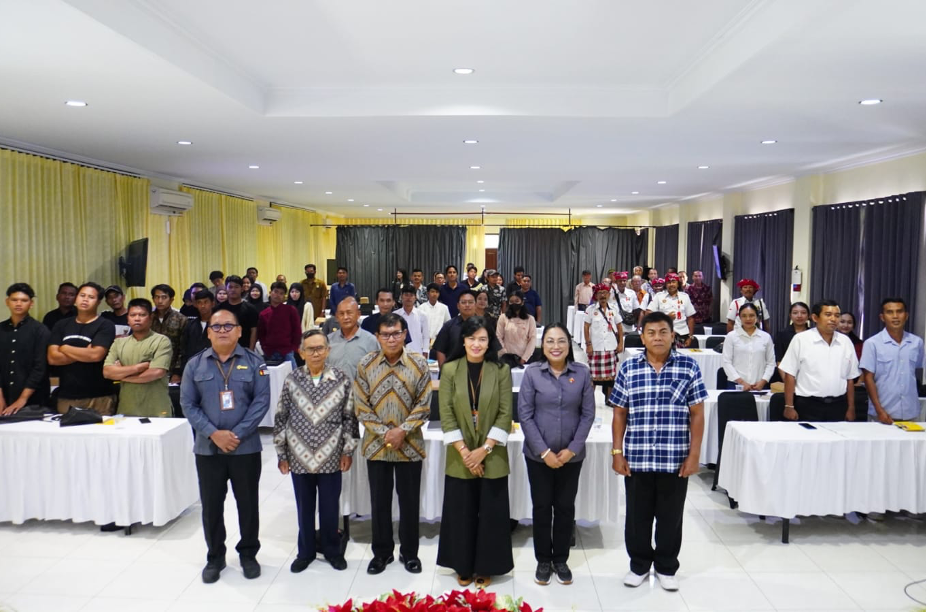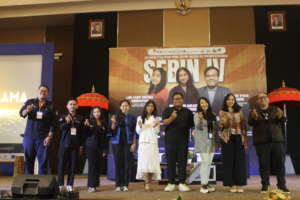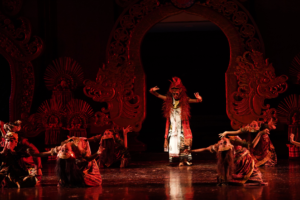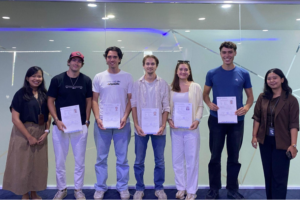
Dr. Widhiasthini on the Strategic Role of Bali’s Traditional Community Leaders in Political Education Ahead of the 2024 Elections
Bali, known as a world-class tourist destination, is made up of diverse community characteristics and has a strong, influential traditional community. The existence of these communities plays a key role in supporting Bali’s tourism activities. Conversely, the various cultural, religious, and customary activities they perform are part of Bali’s cultural elements and have become tourism commodities. In social interactions, these communities have their respective leaders, often referred to as community figures. Their interactions with various social groups are highly intensive, and they possess significant influence and trust from the communities they lead.
The presence of these community figures is particularly strategic in the era of the 5.0 industrial revolution. The communication patterns they employ help raise awareness of the importance of preserving local genius, despite the rapid development of information technology. Considering their strong influence, it is deemed necessary to provide political education to these community figures, which they can then convey to the communities they lead. This aims to prevent society from becoming apolitical, fostering awareness that political activity is deeply intertwined with their daily lives. Through political events, various policies are produced, which then form the foundation for all community activities, regulating the rights and obligations of the people. Politics, in essence, is a collective effort to achieve a better life. To realize this, the community elects leaders at various levels. The current constitution stipulates that national and regional leaders can only be chosen through political events, namely elections, which serve as a legitimate and regulatory process of power transition.
The year 2024, known as a political year, will witness two major political events taking place simultaneously. The 2024 Simultaneous Elections will be held to elect both legislative and executive officials, along with the 2024 Regional Elections (Pilkada), which will be conducted to select regional leaders according to their levels. The Pilkada will take place on November 27, 2024. These simultaneous regional elections will involve 37 provinces and 508 regencies/cities to elect regional heads, namely governors and deputy governors, regents/mayors, and their deputies. Thus, the 2024 Regional Elections will truly be conducted simultaneously and will be participated in by all regions, including the nine regencies/cities and the province of Bali.
As a global tourism destination, the 2024 Simultaneous Regional Elections in Bali will draw international attention. Potential conflicts stemming from the contestation of the regional elections must be anticipated to ensure that Bali’s political stability remains intact. A series of political education activities aimed at community leaders, who serve as leaders of traditional communities, have been and will continue to be carried out. These leaders will then pass on the political education to the communities they lead. The community figures referred to include religious leaders (from various backgrounds), pecalang (traditional security guards), jero bendesa (traditional village leaders), MDA (Traditional Village Council), paiketan pemangku (temple priests), kelian subak (coordinators of agricultural activities), and various other groups.
Political education for these community leaders is specifically aligned with the Sustainable Development Goals (SDGs), targeting several goals, including Goal 5 (gender equality), considering the strong patriarchal culture adhered to by Balinese society. This situation has led to Balinese women not being independent in exercising their political rights. Additionally, it addresses Goal 10 (reduced inequalities) and Goal 16 (peace, justice, and strong institutions) to ensure responsive, inclusive, participatory, and representative political decision-making processes at all levels. This ensures that the principles of elections—direct, general, free, confidential, honest, and fair—can be realized.



